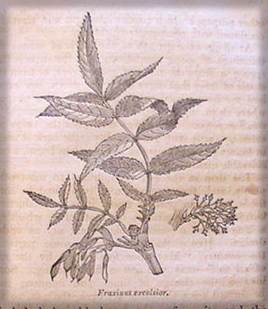
Properties of Timber: Ash
There are about forty species of Ash. The common ash (Fraxinus excelsior) is one of the most valuable of trees.
The Ash agrees with a greater variety of soil and situation than any other tree producing timber of equal value. Also, differing from many other trees, its value is increased rather than diminished by the rapidity of its growth.
On very poor soils, where it grows stunted, it is brittle and soon affected by rot.
Where the growth has been vigorous, the timber is very tough, elastic and durable.
In elasticity it is superior to the oak, and is not so liable to be broken by a cross strain, but it is more fibrous, and more easily split.
Ash is good for agricultural implements, poles, ladders, long handlesand other purposes which require strenth and elasticity combined with comparative lightness.
The thinnings of young plantations are good for hoops, hop-poles, and other purposes where clean, light, strong rods are needed at small expense.
The drip of the ash is injurious to most other plants.
The ash must not be confused with the mountain ash (Pyrus aucuparia) which is quite a different tree. Both trees form wood which is tough, but the mountain ash is a slow-growing tree, never attains any valuable size, and its timber is soft and not durable.
wood-cut:

summarised from "The Library of Entertaining Knowledge - Timber trees" (1829), pub. Charles Knight, Pall Mall.
ND, habitat21
big turbines
small turbines